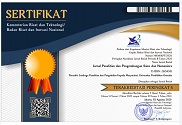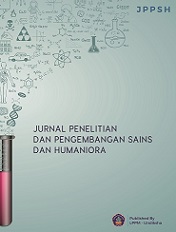Studi Evaluasi Kesiapan Strategi Pengembangan Ekonomi Kreatif Pemberdayaan Kesejahteraan Keluarga (PKK) di Kecamatan Tabanan
DOI:
https://doi.org/10.23887/jppsh.v4i2.30901Keywords:
Evaluasi, Kesiapan, Ekonomi kreatif,Abstract
One of the efforts that can be done to remain productive, especially in the community in Tabanan District, is to intensify the development of the creative economy through PKK with certain strategies. However, in its implementation it is not yet known to what extent the level of readiness of the development strategy to be implemented, so the aim of this study is to determine the readiness of the PKK creative economy development strategy in Tabanan District based on the CIPP evaluation model. The research sample used purposive random sampling technique as many as 48 people. Data were collected using interview techniques, document study, and questionnaires, which were then analyzed using Z scores, T scores, and the Glickman Quadrant. The results showed that the context, input, and process components resulted in a positive category (+ - +) which means that the PKK creative economy development strategy in Tabanan District is ready to be implemented.Downloads
Published
2021-01-07
Issue
Section
Articles
License
Authors who publish with the Jurnal Penelitian dan Pengembangan Sains dan Humaniora agree to the following terms:
- Authors retain copyright and grant the journal the right of first publication with the work simultaneously licensed under a Creative Commons Attribution License (CC BY-SA 4.0) that allows others to share the work with an acknowledgment of the work's authorship and initial publication in this journal.
- Authors are able to enter into separate, additional contractual arrangements for the non-exclusive distribution of the journal's published version of the work (e.g., post it to an institutional repository or publish it in a book), with an acknowledgment of its initial publication in this journal.
- Authors are permitted and encouraged to post their work online (e.g., in institutional repositories or on their website) prior to and during the submission process, as it can lead to productive exchanges, as well as earlier and greater citation of published work. (See The Effect of Open Access)









